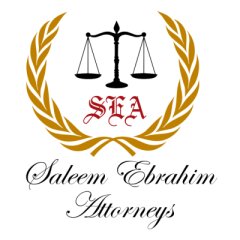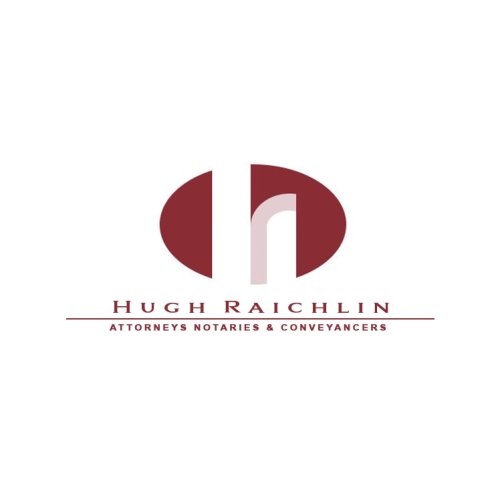Best Trusts Lawyers in Johannesburg
Share your needs with us, get contacted by law firms.
Free. Takes 2 min.
List of the best lawyers in Johannesburg, South Africa
About Trusts Law in Johannesburg, South Africa
Trusts law in Johannesburg, South Africa, is a crucial aspect of the country's financial and estate planning landscape. A trust is a legal arrangement in which trustees hold and manage assets for the benefit of beneficiaries. Trusts can be established for various purposes, including estate planning, preserving family wealth, and charitable endeavors. In Johannesburg, and South Africa at large, the regulation of trusts is governed by the Trust Property Control Act of 1988, alongside common law precedents. This legal framework ensures that trusts are administered in a manner that protects the interests of all parties involved.
Why You May Need a Lawyer
There are several situations where individuals might require legal assistance regarding trusts:
- Establishing a trust: Creating a trust involves complex legal documentation and strategic planning to ensure all objectives are met.
- Administering a trust: Trustees have fiduciary duties and legal obligations, and legal guidance can help ensure compliance.
- Modifying or dissolving a trust: Legal expertise is often needed to navigate these processes, ensuring that all involved parties are fairly represented.
- Dispute resolution: Conflicts may arise between beneficiaries or trustees, necessitating legal intervention to resolve issues.
- Tax implications: Lawyers can advise on the tax liabilities pertaining to trusts to ensure proper financial planning.
Local Laws Overview
Key aspects of local laws relevant to trusts in Johannesburg include:
- Trust Property Control Act of 1988: This act regulates the registration and management of trust property in South Africa.
- Common Law: Influences from common law play a major role in how trusts are interpreted and enforced.
- Fiduciary Responsibilities: Trustees must act in the best interests of beneficiaries, with specific duties outlined in both common law and statutory provisions.
- Regulatory Compliance: Trusts must comply with laws concerning registration and reporting to ensure transparency and accountability.
Frequently Asked Questions
What is a trust, and how does it work?
A trust is a legal arrangement where a settlor transfers assets to trustees, who manage them for the benefit of beneficiaries according to the terms laid out in the trust deed.
What types of trusts are available in South Africa?
Common types include inter vivos trusts (created during the settlor's lifetime), testamentary trusts (created upon death through a will), and discretionary trusts.
How do I set up a trust?
Setting up a trust involves creating a trust deed, selecting trustees and beneficiaries, and registering the trust with the Master of the High Court.
What are the tax implications of setting up a trust?
The tax obligations for trusts in South Africa can be complex, involving income tax, capital gains tax, and potential VAT considerations. Legal assistance is advisable to navigate these complexities.
Can a trust be changed or revoked?
The terms of a trust can be changed or the trust revoked, depending on the provisions set out in the trust deed. This often requires legal guidance.
What are the duties of a trustee?
Trustees are responsible for managing trust assets prudently, keeping accurate records, and acting in the best interest of beneficiaries.
How is a trust different from a will?
A trust can be set up during a person's lifetime, providing ongoing management of assets. A will takes effect only after death, primarily addressing asset distribution.
How long can a trust last?
The duration of a trust depends on its purpose and terms. Some trusts are structured to last for a specific period, while others exist for the lifetime of beneficiaries.
What happens if the terms of a trust are breached?
Breaching trust terms can lead to legal disputes and potential removal of trustees. Legal action can be pursued by beneficiaries or other interested parties.
Can a beneficiary also be a trustee?
Yes, a beneficiary can serve as a trustee, but this can raise conflicts of interest that need careful management.
Additional Resources
For further assistance, consider consulting the following resources:
- The South African Revenue Service (SARS) for tax-related inquiries regarding trusts.
- The Master of the High Court, which handles trust registrations and oversight.
- The Fiduciary Institute of Southern Africa (FISA) for professional standards and educational resources.
Next Steps
If you require legal assistance with trusts, consider the following steps:
- Consult with a lawyer who specializes in trusts and estates to discuss your specific needs and options.
- Prepare documentation and questions ahead of your consultation to facilitate a productive discussion.
- Consider attending a workshop or seminar on trusts for a foundational understanding before making decisions.
Lawzana helps you find the best lawyers and law firms in Johannesburg through a curated and pre-screened list of qualified legal professionals. Our platform offers rankings and detailed profiles of attorneys and law firms, allowing you to compare based on practice areas, including Trusts, experience, and client feedback.
Each profile includes a description of the firm's areas of practice, client reviews, team members and partners, year of establishment, spoken languages, office locations, contact information, social media presence, and any published articles or resources. Most firms on our platform speak English and are experienced in both local and international legal matters.
Get a quote from top-rated law firms in Johannesburg, South Africa — quickly, securely, and without unnecessary hassle.
Disclaimer:
The information provided on this page is for general informational purposes only and does not constitute legal advice. While we strive to ensure the accuracy and relevance of the content, legal information may change over time, and interpretations of the law can vary. You should always consult with a qualified legal professional for advice specific to your situation.
We disclaim all liability for actions taken or not taken based on the content of this page. If you believe any information is incorrect or outdated, please contact us, and we will review and update it where appropriate.
















